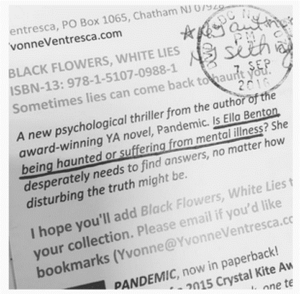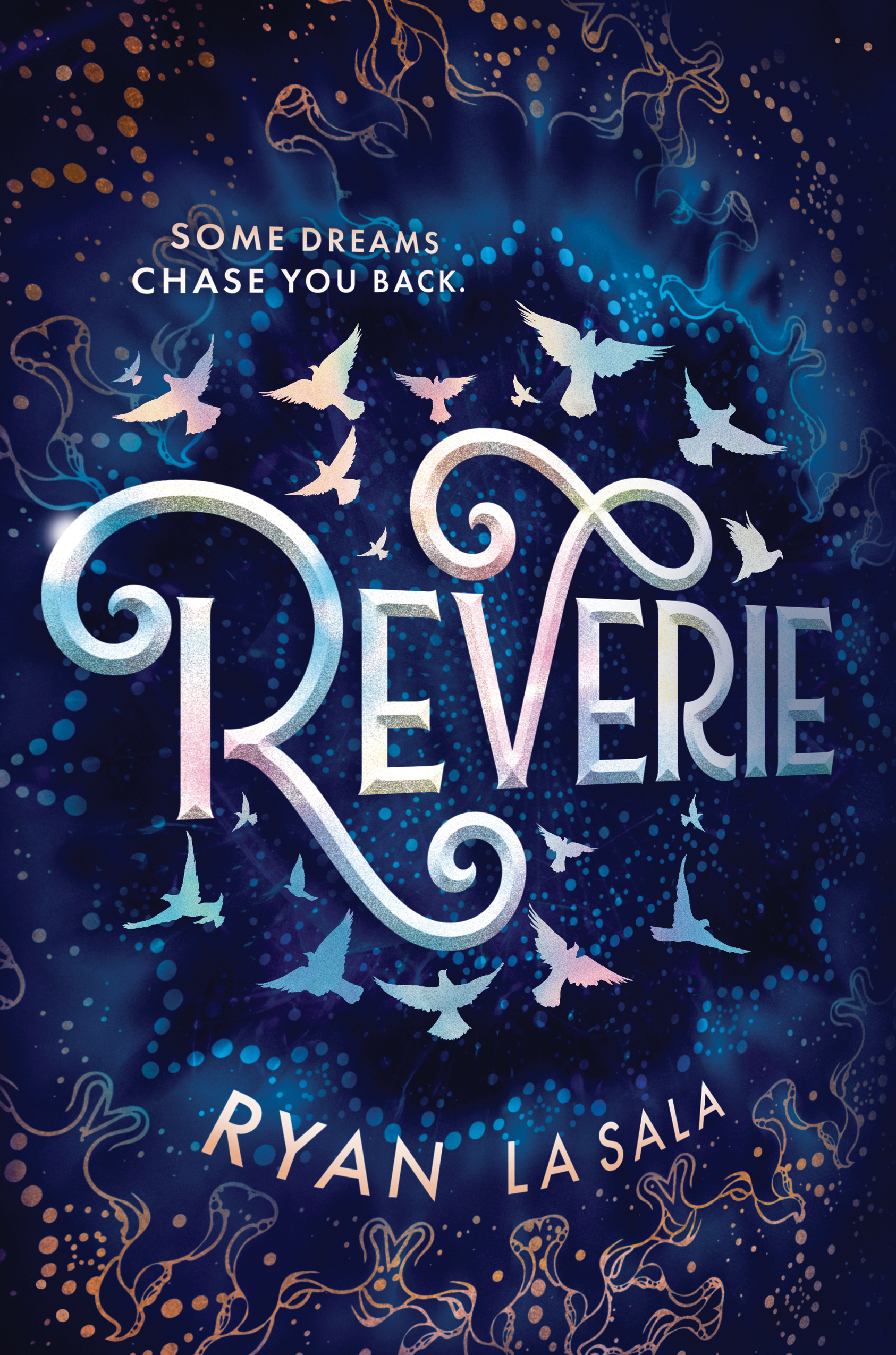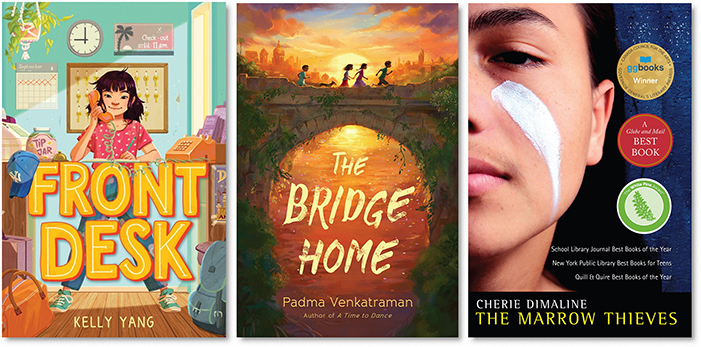#MHYALit: Psychological Thrillers and Mental Health
A few weeks ago, I received a postcard promoting a new YA psychological thriller:
Personally, I don’t like reading psychological thrillers. Don’t get me wrong, I thoroughly enjoy reading thrillers in general, but psychological thrillers always hit me the wrong way because of the way many tend to use mental illness as a shallow plot device and stigmatize mental illness. In this case, what triggered me were the sentences “Is Ella Benton being haunted or suffering from a mental illness? She desperately needs to find answers, no matter how disturbing the truth might be.” At first, I gave the author the benefit of the doubt because I know some authors do not get a say in their book’s cover art or blurbs. I haven’t read the book myself, so I searched for professional reviews. The only one I could find was this negative Kirkus Review. It seems that the blurb reflects the novel’s stereotypical message about sociopathy, and the use of the word “disturbing” to describe “mental illness” is deplorable. Sadly, this book isn’t the first to use mental illness as a plot device, and it certainly won’t be the last. While there are lists of movies that stigmatize mental illness floating around on the internet, I have yet to find one about YA Lit, so I thought I would start the conversation here on #MHYALit.
What makes YA Lit so special to me and my job is its role in teaching, supporting, and shaping the young minds who will become our future. The problem with YA psychological thrillers that stigmatize mental illness is they: teach stereotypes such as people with mental illness can be dangerous, do not support teens who do suffer or know someone who is suffering from mental illness, and shapes young minds to have false impressions of people with mental illness. Instead, what psychological thrillers should be doing is: teach teens substantial and accurate information about mental illness, support teens who suffer from or whom know someone who suffers from a mental illness, and shape the young minds to be compassionate towards others. There are plenty of realistic fiction novels that already do this, but I don’t think I’ve ever come across a psychological thriller that features mental illness without reducing it to a stigma, have you? If you have, please share!
ADVERTISEMENT
ADVERTISEMENT
YA authors, you can do better by writing captivating thrillers that lack stigmatized mental illness as a plot device. And if you are going to use mental illness, I encourage YA authors to really explore the mental illness you are going to write about. Do your research, reach out to people who have experiences with that specific mental illness and mental health professionals. Give readers a deeper understanding about that mental illness, and more importantly, teach your readers why and how they should show compassion. Because if we continue to give teens books like these, we’re perpetuating the cycle of ignorance and indifference of one of the most important issues that affect 1 in 5 teens.
For a list of mental health related links, which includes YA Book Lists and resources for teens, click here.
For an excellent article about how to use novels to teach mental illness awareness and a list of suggested titles, click here.
By: Alanna Graves
Twitter: @LannaLibrarian
Filed under: #MHYALit
About Karen Jensen, MLS
Karen Jensen has been a Teen Services Librarian for almost 30 years. She created TLT in 2011 and is the co-editor of The Whole Library Handbook: Teen Services with Heather Booth (ALA Editions, 2014).
ADVERTISEMENT
ADVERTISEMENT
SLJ Blog Network
One Star Review, Guess Who? (#202)
Review of the Day: My Antarctica by G. Neri, ill. Corban Wilkin
Exclusive: Giant Magical Otters Invade New Hex Vet Graphic Novel | News
Parsing Religion in Public Schools
ADVERTISEMENT









I would highly recommend “The Masked Truth” by Kelley Armstrong. This was one of the first true thrillers I ever read and only picked it up as I have loved her other works.
Many of the characters in this story are struggling with mental health concerns including PTSD, Schizophrenia, depression and more. Where this really shines is in the second half of the novel – the two main characters are confronted with stigma and prejudice when, because of their illness they are not believed.
If you’d like to see a review, the Canadian Review of Materials (CM Magazine) has published a great one.
https://www.umanitoba.ca/cm/vol22/no13/themaskedtruth.html
Hope this gives you somewhere to start.
Kelsey J.